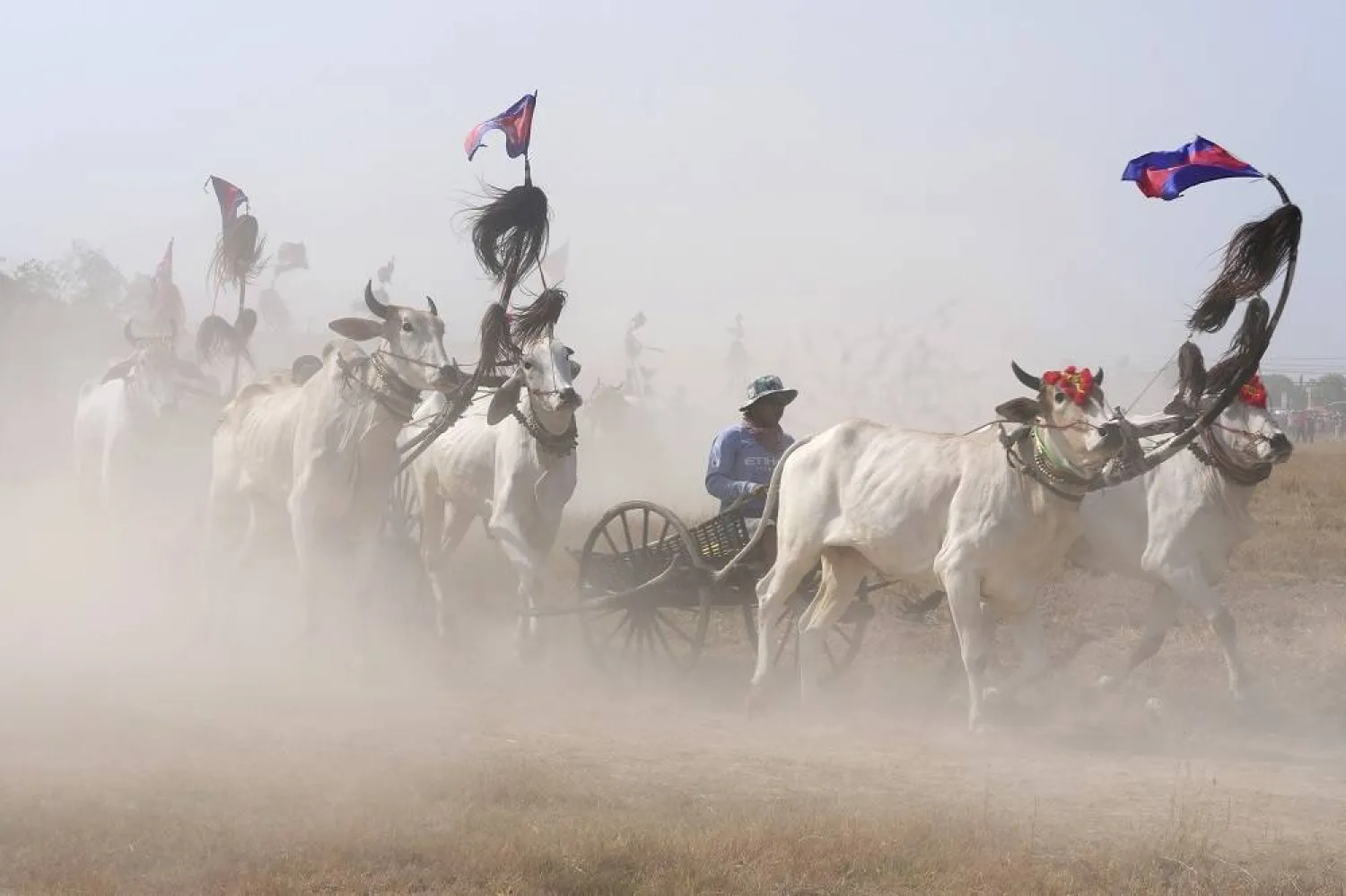Hundreds of Cambodian villagers held a rare oxcart race on Sunday, trying to revive a centuries-old tradition as they celebrated the arrival of the lunar new year.
Under a hot sun and amid clouds of dust, they gathered in Romduol village in Kampong Speu province, about 40 kilometers (25 miles) west of the capital, Phnom Penh. The race marked Khmer Lunar New Year, celebrated from April 13 to 16, and the end of the rice harvest.
Participants rode an oxcart pulled by two oxen along a roughly 1-kilometer (0.62-mile) -long dirt track, as spectators lining the route cheered enthusiastically.
Fifty pairs of oxcarts competed in the race from four provinces: Kampong Speu, Kandal, Phnom Penh and Kampong Cham.
The oxcart has played a significant role in Cambodia for centuries, especially for farmers and for the transportation of agricultural goods and people in rural areas.
However, the oxcart today is on the brink of disappearance with tractors and motorized rickshaws increasingly replacing the older technology.
Sunday’s race was a first for Khem Rithy, 40, a teacher from Kampong Speu provincial high school who traveled with 150 students to watch the race.
“We have a lot of wonderful culture in Cambodia. I want Cambodians to know this culture,” Rithy said.









